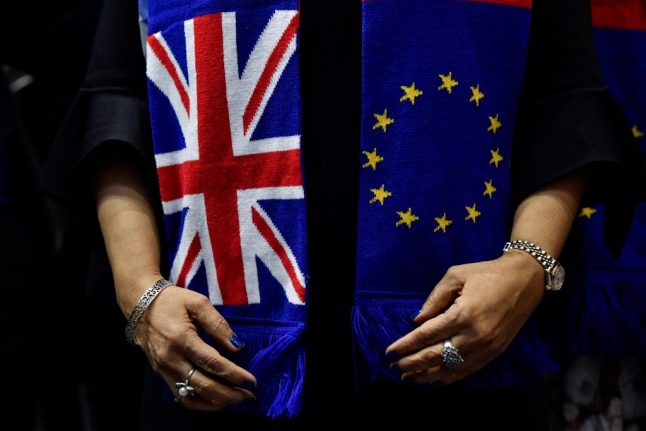On Friday April 24th, Michel Barnier held a press conference in Brussels to report on trade negotiations between the UK and EU. The virtual talks took place last week, with two further rounds of negotiations scheduled for the weeks beginning May 11th and June 1st.
Media descriptions of the EU’s reaction varied from “disappointing” to “Barnier launches a blistering attack”, with many commenting that Barnier had accused the UK of “failing to engage”.
Based on earlier Brexit negotiations, it was no surprise that the UK and EU had different approaches. The EU produced a 350-page text, which Barnier proudly presented at the press conference. The EU text covers every topic and is available online for everybody. The UK, in contrast, produced a document covering just seven areas and insisted that the content remained confidential.
Barnier stated that “our objective for tangible progress has only been partially, very partially, met this week.”
He emphasised the need to progress on all fronts and spoke of the tight timescale, which means agreements on some areas must be reached by the end of June.
Boris Johnson readily agreed to this timescale when earlier negotiations were finalised. In fact, Barnier accused Johnson of rowing back on commitments made in the Political Declaration, which was signed in conjunction the Withdrawal Agreement in winter 2019.
In a statement released later, a UK government spokesman said: “This was a full and constructive negotiating round” but tentatively agreed that progress between the two sides being “limited”.
Fishing rights remains a contentious and urgent issue, yet the UK hasn’t produced a legal text on this topic yet.
Likewise, issues over the Irish border are of major concern. Barnier said clear evidence was needed that “the UK is advancing with the introduction of the agreed customs procedures for goods entering Northern Ireland”.
That would require implementing the necessary steps for customs and SPS checks (animal and food health). According to Michael Gove, 50,000 new staff will be needed to oversee the arrangements. Evidence of a facilitation plan might be reassuring!
The EU has insisted that “a basic trade agreement would have to be accompanied by agreements on a level playing field and on fisheries”.
Barnier also accused the UK of failing to provide firm guarantees and relying on “vague principles” re fundamental rights and individual freedoms, creating “serious limitations for our future”.
The UK, meanwhile, stated that no progress would be made on the “so-called level playing field… until the EU drops its insistence on imposing conditions on the UK which are not found in the EU’s other trade agreements and which do not take account of the fact that we have left the EU as an independent state”.
On environmental and social standards, Barnier said we should be “aiming high” and criticised the UK government for failing to engage substantially on these topics. He said the UK had argued “our positions are too far apart to reach an agreement” – the implications being, perhaps, “why bother?”.
Even before the press conference, a leaked EU document revealed that the EU intended to rebuff some UK proposals, namely on aviation, justice and security cooperation, which included remaining in the EU crime-fighting agency, Europol.
Yet again, the EU said there could be no “cherry-picking” and reiterated that benefits of EU membership are only available to EU members.
It reaffirmed that the UK will not be treated as a member state and suggested there’s still a lack of “recognition” from the British government on what leaving the bloc really means.
Barnier said it was the UK, not the EU, that was imposing a short timeline, with its unwillingness to contemplate extending the transition period.
Clearly, an extension would be welcomed by the EU, and Barnier was asked specifically if the EU would request one, if the UK didn’t.
He said that the door to an extension was open, but it shouldn’t be about one side asking the other to extend – it should be a mutual decision.
Barnier suggested that any discussions about extensions would be conducted nearer to the June deadline, after every effort to progress the negotiations had been made. He also said that, while the UK were refusing to budge on this topic, it is also slowing down the discussions with its present approach – two contradictory positions.
With just two rounds of talks before the June deadline, it’s difficult to see how progress can be made unless the British government reconsiders its approach. With Frost’s team being “selective” and refusing to engage fully, Barnier admitted worry and regret.
As Barnier said, any future relationship “can only be built on trust” and with “political will, realism and mutual respect”.
That trust, respect and realism have never been more necessary than in the current Coronavirus climate. When we finally emerge at the other end, we’ll need our friends and neighbours close.
I’m not sure there ever was a time for the UK to go it alone, in this global world. Even if there was, that time certainly isn’t now.
By Sue Wilson – Chair of Bremain in Spain

READ ALSO:
- OPINION: Coronavirus has made Brexit negotiations impossible so isn't it time to delay?
- OPINION: In the face of coronavirus, we are all Europeans




 Please whitelist us to continue reading.
Please whitelist us to continue reading.
Member comments